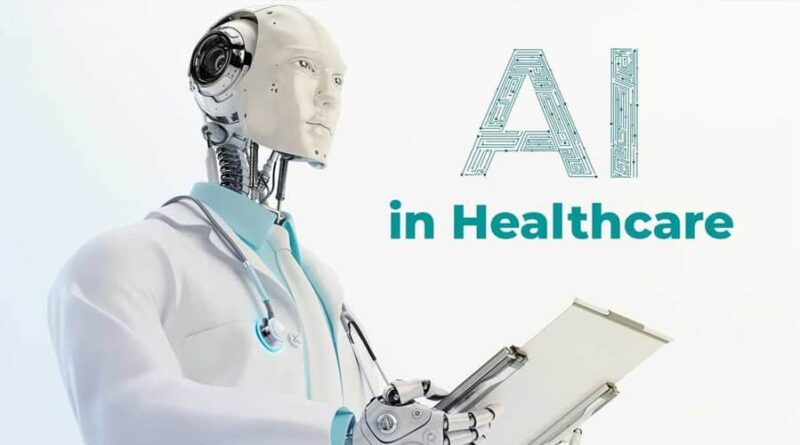How AI is Revolutionizing Healthcare in 2024
|
Getting your Trinity Audio player ready...
|
Artificial Intelligence (AI) has become an integral force in reshaping global industries, but its influence in healthcare is particularly transformative. In 2024, AI is driving innovations that are revolutionizing diagnostics, enhancing personalized treatments, optimizing healthcare delivery, and improving administrative efficiency. With smart algorithms, predictive modeling, and real-time data analysis, AI is not only improving the quality of care but also making healthcare more accessible and affordable. This article explores the current and evolving role of AI in modern medicine, backed by up-to-date examples, trends, and actionable insights.
AI-Powered Diagnostics: Faster and More Accurate Results
One of the most groundbreaking applications of AI in 2024 lies in medical diagnostics. With deep learning and machine learning algorithms, AI systems now process vast datasets in seconds, identifying subtle patterns and anomalies that can escape human observation. This is particularly impactful in radiology and pathology, where image-based diagnosis plays a vital role.
Current Innovations:
In 2024, platforms like Google’s DeepMind and IBM Watson Health have significantly enhanced image recognition accuracy. AI models now assist radiologists by flagging early-stage cancers in mammograms or subtle fractures in X-rays with remarkable precision. In addition, pathology labs use AI to analyze slides, helping detect diseases like melanoma, leukemia, and prostate cancer faster than ever before.
Why This Matters:
Accurate and early diagnosis leads to timely treatment, reducing patient suffering and healthcare costs. AI’s integration is also improving diagnostic accessibility in remote areas where specialists are scarce, especially through telemedicine-linked tools.
Personalized Medicine: Tailoring Treatments with AI
Another major breakthrough in 2024 is AI’s role in personalizing medical treatment. Rather than a one-size-fits-all approach, healthcare providers are now using AI to analyze a patient’s genetic data, medical history, lifestyle, and response to previous treatments to build customized therapy plans.
Latest Developments:
AI algorithms integrated with genomic sequencing tools are accelerating discoveries in personalized cancer treatment. In oncology, precision medicine platforms use AI to match patients with the most effective drug therapies based on their tumor’s genetic makeup. Companies like Tempus and Foundation Medicine lead this transformation.
Benefits to Patients:
- Higher success rates for treatments with reduced adverse effects.
- Faster drug compatibility identification, minimizing trial-and-error.
- Increased patient trust and adherence, as therapies feel more tailored and effective.
Virtual Health Assistants and AI Chatbots: Revolutionizing Patient Engagement
AI-powered virtual assistants have become a central tool in patient care by providing 24/7 health support, reducing the load on medical staff, and improving patient engagement. These platforms go beyond simple symptom checkers—they now provide real-time consultations, prescription reminders, and mental health guidance.
What’s Trending in 2024:
AI tools like Ada Health, Babylon Health, and Woebot have expanded functionality. Babylon’s AI chatbot, for instance, is now integrated with wearable devices, analyzing real-time health data to suggest lifestyle improvements. Woebot has evolved to offer guided mental health therapy using clinically validated Cognitive Behavioral Therapy (CBT) techniques.
Impact on Healthcare Delivery:
Virtual assistants are improving healthcare accessibility, especially for rural or underserved communities. By offering multilingual support and integration with electronic health records, these systems ensure continuity of care and help patients stay informed and compliant with treatment.
Robotic Surgery: Precision and Safety Through AI
AI-enhanced robotic surgery continues to evolve in 2024, providing unprecedented precision and reducing the risks associated with human error. With real-time data processing, robots assist in complex procedures, improving patient outcomes.
Current State of Robotic-Assisted Surgeries:
Systems like Intuitive Surgical’s Da Vinci and Medtronic’s Hugo now come with advanced AI capabilities. They analyze intraoperative data to guide incision points, adjust pressure, and even correct deviations in real time. Newer robotic systems are now equipped with AI-powered haptic feedback, offering tactile sensation for more responsive surgeries.
Advantages:
- Reduced recovery times due to minimally invasive techniques.
- Enhanced success rates in delicate procedures such as neurosurgery and cardiovascular surgery.
- Training new surgeons with AI-driven simulations to improve proficiency before live operations.
Administrative AI: Streamlining Operations and Saving Costs
In 2024, AI is playing a transformative role not only in patient care but also in healthcare administration. With advanced automation tools, hospitals and clinics are streamlining operations—cutting costs, reducing human error, and reallocating resources more efficiently.
Recent Use Cases:
AI tools like Olive AI and Nabla Copilot are automating repetitive administrative tasks such as appointment scheduling, claims processing, and medical transcription. AI-driven billing systems now use Natural Language Processing (NLP) to interpret physician notes and generate accurate invoices in seconds.
Key Outcomes:
- Reduction in claim processing time by up to 70%.
- Enhanced accuracy in patient records and billing.
- Less administrative burden on healthcare providers, allowing more focus on patient care.
Predictive Analytics: Preventing Illness Before It Starts
AI’s ability to anticipate health trends and individual patient risks is reshaping preventive healthcare strategies in 2024. Using real-time data, these systems flag potential outbreaks, chronic disease progression, and resource demands before they become critical.
Notable Examples in Use:
Healthcare institutions are using platforms like Health Catalyst and Epic’s AI Predictive Models to forecast flu outbreaks, COVID-19 resurgences, and emergency room traffic. Wearables such as Apple Watch Series 9 and Fitbit Sense 2 now sync with hospital systems to flag cardiovascular or diabetic anomalies early.
Why It Matters:
- Preventative care reduces hospital admissions and healthcare costs.
- Predictive modeling enables smarter public health policies and better allocation of vaccines, beds, and emergency staff.
- Patients receive alerts and care before complications arise.
Ethical Challenges in AI-Enabled Healthcare
With great power comes great responsibility. In 2024, the integration of AI into healthcare continues to raise ethical concerns surrounding data privacy, algorithmic bias, and transparency in decision-making. These issues must be addressed to ensure AI remains a tool of equitable healthcare delivery.
Pressing Concerns:
- Data Security: With AI reliant on vast datasets, ensuring HIPAA-compliant encryption and data anonymization is critical.
- Bias and Discrimination: Studies in 2024 reveal that some AI models still show skewed results when trained on non-diverse datasets, risking misdiagnosis for minority populations.
- Transparency: Black-box models must be replaced with interpretable AI that explains decision pathways clearly to clinicians and patients.
Best Practices for Ethical Use:
- Use AI audit frameworks like Google’s Model Cards or IBM’s AI Fairness 360.
- Ensure datasets are demographically inclusive.
- Educate healthcare professionals on how AI makes decisions, enhancing trust and collaboration.
Conclusion
As we move through 2024, AI is no longer just a futuristic concept in healthcare—it is an active, evolving force shaping every aspect of the medical journey. From pinpointing a diagnosis in seconds to tailoring treatments for the individual, from robot-assisted precision surgeries to 24/7 virtual support, AI is redefining what it means to receive and provide healthcare.
However, with these advancements come responsibilities. Ethical governance, transparency, and inclusivity must be prioritized to ensure AI’s benefits reach every patient, everywhere.
The future of medicine is here—and it’s intelligent.




